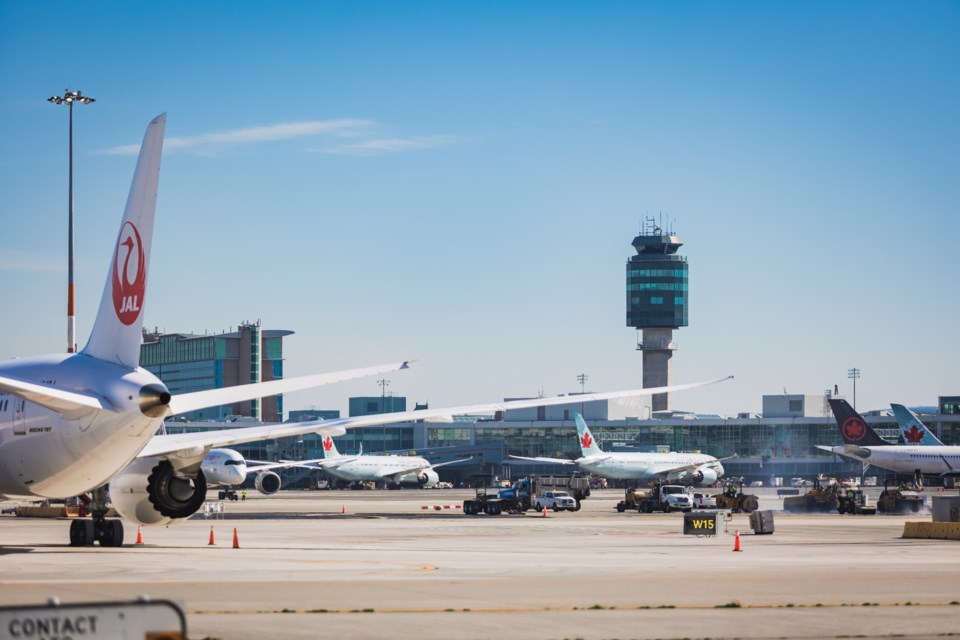A new organization is aiming to accelerate the development of a sustainable aviation fuel (SAF) supply in Canada.
The Canadian Council for Sustainable Aviation Fuels (C-SAF) was launched late last month by a consortium of 60 domestic and international airlines operating in Canada.
The not-for-profit’s members also include jet fuel producers and suppliers, aerospace manufacturers, research institutions and airports – including Vancouver International Airport (YVR).
Geoff Tauvette, executive director of C-SAF, said decarbonizing Canada’s aviation sector requires collaboration.
“The C-SAF provides a space for a common dialogue to facilitate the exchange of ideas to reduce GHG emissions from aviation and we strongly believe that with everyone working together, change can happen faster,” he said.
According to C-SAF, the aviation sector will be “one of the most difficult to decarbonize,” as electric and hydrogen technologies are in development – which is why public policies need to be put in place to encourage and accelerate the development and use of SAF.
“We want to promote and implement sound public policies to address aviation's need for a sustainable, made-in-Canada, affordable supply of aviation fuel," said Tauvette.
SAF is made from renewable feedstocks, such as forest and agricultural residues, industrial fats, oils and grease, municipal solid wastes and CO2 captures from industrial processes in the air.
It can also be used in existing airport fueling systems.
SAF currently isn’t produced or imported “in significant quantities” in Canada and can cost up to eight times more than traditional jet fuel, according to C-SAF.
The commercial aviation industry accounts for about two to three per cent of carbon emissions worldwide, according to the International Air Transport Association (IATA), a trade association of the world’s airlines.
IATA also notes that demand for air passenger travel in 2050 could exceed 10 billion – and, at this rate, the expected 2021 to 2050 carbon emissions on a “business as usual” trajectory is approximately 21.2 gigatons.
As a result, the aviation industry is banking on SAF, which can reduce life-cycle carbon emissions by up to 80 per cent compared to traditional jet fuel.
“(The C-SAF) is a major step in continuing to decarbonize Canadian aviation to meet our climate goals,” said YVR in an emailed statement.
“YVR is proud to partner with C-SAF to facilitate the production and supply of affordable, low-carbon SAF made in Canada. It is important for the entire SAF ecosystem – the entire value chain that starts with feedstock supply, through refiners, airlines and airports, facilitated by the critical policy work from federal and provincial governments”
YVR is also working on creating a made-in-B.C. supply of SAF.
In 2019, the airport launched BioPortYVR, in partnership with the Green Aviation Research and Development Network, SkyNRG and Waterfall Group, to develop a B.C.-made supply of SAF.
Marion Town, YVR’s director of environment, said C-SAF will also provide support “to the work progressing in B.C. and accelerating BioPortYVR.”
Town told the Richmond News earlier this year that while SAF is more expensive than fossil-based aviation fuels, policy changes could help lower the costs – making something airlines can purchase while recovering from the COVID-19 pandemic.
She pointed out at the time that, last October, the province announced it is expanding the Low Carbon Fuel Standard – which requires fuel suppliers to progressively reduce the amount of carbon in fuels supplied to B.C. users – to include marine and aviation fuels, beginning in 2023.
“(That) is the signal we’ve been waiting for,” she said at the time.
Omar Alghabra, federal Minister of Transport, said in a statement C-SAF will keep Canada’s aviation sector competitive and create jobs for Canadians, as well as help the country achieve its net-zero emissions targets by 2050.



